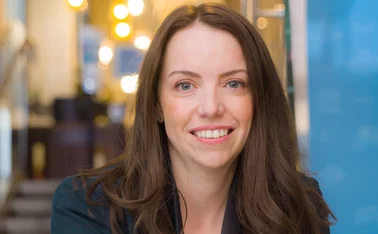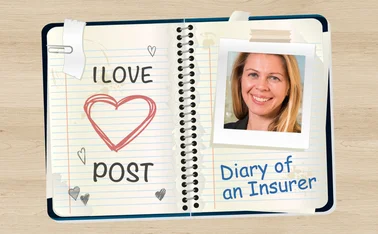
Schemes - Conception & construction: Special delivery

Setting up schemes to cover specialist sectors can be a lucrative business - but it requires brokers, insurers and customers to work together. Stephanie Denton looks at this evolving market.
In 2002, the last insurer providing professional indemnity cover for independent midwives left the market and this sector has been unable to secure cover since. In 2010 a group of these midwives formed itself into an association and commissioned Flaxman & Partners to seek a solution to this pressing need.
Although what is meant by the word ‘schemes' is not always clearly defined - which can have some advantages according to tony Bloomer, schemes and affinity manager at Ecclesiastical - this process of the customer approaching the insurance industry is unusual. so is this the best way forward for scheme development?
To some extent this has always been the case according to Philip Alexander, partner at accountancy firm Littlejohn, although not to the extreme seen recently with midwives: "schemes have always been put together by groups getting together because this is the easiest way to bring premiums down." Darren Pacey, sales and distribution director at Zurich, agrees: "It is a combination of sectors approaching brokers; insurers looking to address shortfalls in cover; and brokers and insurers going looking for the gaps."
However, Malcolm Lee, managing director at Ten, adds: "Generally speaking brokers generate schemes. they run into someone with a problem getting cover and try to develop a scheme. If done right these can be long running."
"Most schemes originate from brokers' knowledge and expertise and then they look to insurers to address the sector," explains Mark Keavney, development manager for commercial product development at Aviva. "Insurers and brokers track trends and legislation to see what is coming and whether they can enhance existing cover or work up a scheme. These are specialist and very involved, so the way they are set up will be different each time. There are ebbs and flows to meet the needs of each market."
Roger Flaxman, director of Flaxman & Partners, supports the idea that, in most cases, brokers are the specialists and it makes sense for the process to start with them: "the situation is very different for midwives as they have a reputation for an appallingly bad track record of claims but there are no records or statistics to actually prove or disprove this as they are held by the NHS.
"About 300 of them have formed an association called Midwives UK, which has approached insurers. The insurers have said no because it is not a real trade body; these midwives want to be self employed but can't afford the level of cover insurers would want to include. Claims potential is huge and probably more than midwives earn in a lifetime.
"This certainly seems very special circumstances but it is not the first time the market has witnessed something like this, according to Shaun Randell, class underwriter for liability at Amlin: "Where a group has struggled to find cover they do sometimes get together to secure insurance. One previous experience was in 1994/1995, following the Piper alpha disaster, where offshore liability cover was hard to come by so a group formed."
Significant strides ahead
Despite midwives facing an unusual set of circumstances, most in the sector agree the schemes market has moved on rapidly over the past 10 years. Nick Grazier, head of marketing at Jubilee, says: "the biggest change is that traditionally a scheme would have been a standard product done through direct marketing to one group. It used to be an off-the-shelf product with a new logo but it's different now."
"There is more expertise and understanding of risk, and thus the need to ensure a scheme makes a return," adds Mr Pacey. "In the past, insurers and brokers either fell into them or had some contacts, but now there is more sophistication in the segments. It is less of a broad-brush approach and more about looking for expertise. Insurers are more sophisticated in understanding risk, cover and exposures.
"We look to align ourselves with a broker that has scheme specialists and many approach us if they see an opportunity. It is a blend of resources - brokers can have the expertise and we have the capacity. If there is no track record in an area then brokers can lead with their expertise and shape a proposition."
Andrew Ball, schemes manager at Arista, supports this: "there is a far more structured approach to schemes and scheme management at the moment." his colleague Simon Henderson, head of schemes at Arista, highlights that the market is currently seeing "real innovation": "the economic environment has a bearing on the situation but brokers also want to add value to their customers. scheme management is better and schemes in the commercial market account for 20% of it so this is big business.
"Business plans are more structured and professional, and they are well thought out. a business plan needs to cover marketing, underwriting and revenue - it needs to be attractive to everyone." Gary Davis, business development broker at Holman's, supports this: "a detailed robust business plan is an absolute requirement and without this it is impossible to get past first base, it is no longer a back of a cigarette packet approach. The coverholder must be prepared to invest the time and demonstrate they understand their product and the market."
"We have to filter out schemes to find the best and we look carefully at business plans, which need to show the scheme is viable for both the broker and the insurer," confirms Mr Henderson. "There is a cost to bring these to market and launch, so we have to make sure something is viable."
And in making a proposition viable there are certain essential ingredients - the first one being a customer-led solution. Mr Grazier explains: "The starting point should be the market and research is paramount. Who needs this and what are their buying habits? Customers must be engaged and access to the market needs to be unique."
Another vital factor is distribution. "To be successful, a scheme needs genuine partnership between the broker and insurer; it must be unique and exclusive. We ask: why would the customer buy from this source and what is different to other available distribution channels?" says Mr Grazier. "Brokers need to understand the sector and be a part of the community, it is important to be up to date. Sectors change and technology moves on, and products need to be able to do this too."
"I cannot understate how important a good distribution channel is; you can have the best product in the world but without a good distribution channel it becomes worthless," adds Mr Davis. "Unless you can sell something, it is not a good idea."
A shared aim is also crucial, according to Mr Bloomer: "The relationship between broker and insurers need to be sound and they must share the same vision; if one is more excited than the other then it will fail." And this means building strong relationships with brokers, says Mr Keavney: "It is easier to quantify brokers with good claims experience and experience of schemes, but we will also consider working with those who do not have this."
"Delivery and administration capability is also important," adds Mr Grazier. "Technology and the web have played an important role and there is now a need to fulfil the full cycle from sales to claims." Mr Bloomer agrees: "There is an obsession with the product but we should be looking at the whole package including service, infrastructure and claims as well as how we market this to customers. It is the full proposition that will bring success. A product can be copied as soon as it comes to market, but service is harder to replicate."
Mr Davis emphasises that finding a niche is also high priority: "It needs to be a complete niche to get capacity. Insurers don't want to be competing with other schemes but they are happy to look at any ideas." Mr Pacey would seem to agree: "The principal challenge is trying to find a sector that has not been approached before."
But all of this is worthless if you don't have the data to back it up, says Mr Bloomer: "It costs money to produce and market these schemes; it's a high-risk approach to do on a whim. Every opportunity must be backed up by data. Brokers need to differentiate but if they are not closely aligned to the group - and have not tested the product on them - it will fail."
This sounds like a lot of work but, according to Mr Henderson, it is well worth it: "Scheme retention rates are usually better than mass market products and this business is looking for a level of service where brokers can differentiate themselves."
So when brokers feel they have the recipe right, are insurers knocking down their doors to offer capacity to their schemes? "If all the right features are there, there is almost a better chance of success now," claims Mr Pacey. "We do a great deal of data collection but if the opportunity is good and the broker has a good sector track record there is no reason not to."
"Insurers are keen to be involved," adds Mr Flaxman, "if you offer an underwriter a block of money they are going to find it hard to say no."
And the future looks bright for schemes. Mr Bloomer explains: "There is no doubt that the emergence of social groups is going to be stronger and greater because, with tools like Facebook, it is easy to find people with common interests. The commercial market is mature, prices won't go up much and brokers need to differentiate. Groups with close needs present an opportunity for both brokers and insurers to produce a targeted product."
Mr Lee agrees, adding that the internet provides both challenges and opportunities: "There is growth potential for new schemes and online trading is having an impact. We are all getting used to buying on the internet and those brokers that can generate a good scheme on the web will do well. It's about identifying a niche, having the ability to create it and get the marketing right on the internet.
"This requires new skills and is no longer just about getting backing. In the past, schemes were about dreaming up an idea, convincing an insurer and doing basic marketing. It now requires much more intensive marketing and expertise."
Mr Alexander agrees there are plentiful opportunities for schemes: "Insurers are generally only competing for ‘good' quality clients and a number of individuals have been disenfranchised, through increased prices. This has provided brokers and insurers with the opportunity to develop specialist products designed particularly for problem areas of the market. As the market concentrates on the norm there will always be niches missed."
And Mr Randell believes it unlikely this market will reach saturation point: "It is a cyclical market and cyclical economy, so will never reach complete saturation. You may see this on some SME lines but you can't predict what will happen in the future and another one-off disaster, like Piper Alpha, can lead to another gap in the market." And a quick review of products launched recently shows insurers are brokers are not afraid to tackle the unusual.
However, Mr Alexander advises caution: "There is a lot of competition and, if rates stay low, there may be more pressure on the bottom line. This has historically meant rogue schemes have started only to produce horrible results, which have given the whole market a bad name." But Mr Pacey reassures that insurers aren't just jumping on this bandwagon; they take their job of risk assessment seriously: "We have turned down schemes recently because we don't have enough insight into them or want to be fighting on price. To us it is more about value."
Schemes appear to be flavour of the month and undoubtedly more will come to the market this year. But Mr Lee advises this route isn't for everyone: "I am not a lover of schemes; some brokers try to persuade insurers to underwrite a group that gives them the edge but this doesn't always work. Sometimes it is better to just put your effort into concentrating on individual customers."
|
Scheme |
Partners |
Target audience |
|
Takaful restaurant/take-away scheme |
Aviva/Iman Insurances Servicea |
Restaurants or take away food premises that wish to be takaful compliant |
|
Vet surgery package |
Heath Lambert |
Vets - cover in the event of an emergency |
|
Health food scheme |
Amlin/JLT |
Producers, importers and retailers within the health food sector |
|
Classic car scheme |
Lucas Fettes/Brit Insurance |
Classic car dealers - cover in the event of a loss |
|
Learner driver scheme |
AA/Collingwood Insurance Services |
Learner drivers who wish to build up practice hours without affecting their parent's insurance policies. |
|
Heating schemes |
QBE/Sutton Specialist Risks |
For heating, ventilation and refrigeration engineering trades for domestic, commercial and industrial clients |
|
Mortgage indemnity for self build projcts |
Jubilee/Buildstore |
For people wishing to build their own properties and protect each stage of the build. |
|
Cosmetic travel insurance |
Jubilee/Angelis |
To cover the particular travel needs of people going abroad for cosmetic/elective or dental surgery |
|
Mis-fuelling insurance |
Jubilee |
People who accidentally put the wrong fuel in their cars |
|
Motor spotrs personal insurance |
Jubilee |
Amateur race drivers |
|
Electric vehicles |
Ecclesiastical |
Owners of electrical cars |
|
Computer equipment |
Ecclesiastical |
Cover for computer equipment for the disabled |
Only users who have a paid subscription or are part of a corporate subscription are able to print or copy content.
To access these options, along with all other subscription benefits, please contact info@postonline.co.uk or view our subscription options here: https://subscriptions.postonline.co.uk/subscribe
You are currently unable to print this content. Please contact info@postonline.co.uk to find out more.
You are currently unable to copy this content. Please contact info@postonline.co.uk to find out more.
Copyright Infopro Digital Limited. All rights reserved.
As outlined in our terms and conditions, https://www.infopro-digital.com/terms-and-conditions/subscriptions/ (point 2.4), printing is limited to a single copy.
If you would like to purchase additional rights please email info@postonline.co.uk
Copyright Infopro Digital Limited. All rights reserved.
You may share this content using our article tools. As outlined in our terms and conditions, https://www.infopro-digital.com/terms-and-conditions/subscriptions/ (clause 2.4), an Authorised User may only make one copy of the materials for their own personal use. You must also comply with the restrictions in clause 2.5.
If you would like to purchase additional rights please email info@postonline.co.uk








